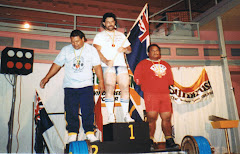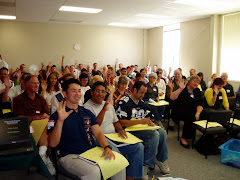
Here in NZ, we watched a week ago, as a tragic event unfolded in Napier (I lived there for 14 years). Jan Molenaar shot a police officer dead, wounded 2 other police officers and a neighbour. Who tried to wrestle the rifle off of Molenaar, giving the 2 wounded officers an opportunity to crawl away and in the process, getting shot himself.
Molenaar remained held up in his fortified home, with some 70 plus, near by homes either being evacuated, or others with their occupants hiding in their homes as the siege unfolded. Molenaar was heavily armed and kept as many as 100 Police and Special Tactics teams at bay, for near 3 days. The drama, finalising with the death of Jan Molenaar, found dead in his master bedroom.
For NZ this is a tragic event which will forever be remembered in our countries history. A country with just over 4.2 million people, we have had very few of these hollywood movie type gun battles.
Why did this happen? What went wrong, for a man to return home after the morning walking his dog to find 3 police man searching his home. He takes exception to this and shoots the officers, who were on a low profile drug search of his home at the time.
What bought this to mind for me was Jan Mollenar was a regular and long term member of the Gym I owned in Napier. He was an unassuming, dedicated weight trainer who I found polite and easy to talk to. What went wrong? How does this and similar events, world wide happen?
I'm not going to write on the Napier tragedy. I'm sure the Clinical Psychologists and Criminologists will have a filed day with Molenaar's case. What I am going to give here is an overview of a topic I have been studying for quite sometime now. I hope you find it both interesting and thought provoking.
What Makes Good People Go Bad.
As I mentioned before, I have been researching this topic for quite sometime.
What is it that turns staff within an organisation to behave in a synister manner, towards their boss or fellow workmates, causing havoc in the workplace and the deliberate destruction of team moral and synergy?
These are questions I have asked myself often, as a direct result of the work I do, in righting very difficult conflict situations within the corporate world. I'm going to outline some of my findings here for you and hopefully prompt you to consider a more holistic and systemic approach when coaching or managing staff who are behaving out of character, causing harm to those they work with and themselves.
A leading researcher I have come across in studying the psychology of evil is Dr Phillip Zimbardo and his book The Lucifer Effect (a rather large book to read. This'll save you some time). Here I will use my adaptation of his 3 stage example and metaphor. I'll also add some of my own findings to the model for your use.
3 Likely Causes of Bad Apples
1) A Bad Apple:
The cause to the problem could be that you have recruited the wrong person. That is, they are not the right business fit. They do not align with the mission, vision and values of the organisation. Worst case scenario here, is they are just down right nasty. Even

be a corporate sociopath. It's suggested that 2-3% of our workforce is made up of sociopaths. Many of these people due to their need for control, are attracted to senior management! This brings a whole new outlook to leadership training.
The trouble a bad apple can cause to a barrel of apples is huge! The best approach is to extract the bad apple fro the barrel and question the apple sorters on "...How the hell did you let this peson in here?"
To sort this out requires a robust recruitment process
(way too often lacking and too orientated to behavioural interviewing) and also requires a manager who is able to effectively performance manage the bad apple out.
2) Good Apple Put In A Bad Apple Barrel :
This is a sad situation. A good apple thrown into a bad apple barrel!
To survive, the good apple has to either crawl from the barrel and move on or stay, and fight to become the leader of all the bad apples. At the very least, fight fire with fire and become a bad apple themselves.
Again, management allowing this to happen, is unacceptable. Likely the result of poor management, weak human resource consultants and a closed eye approach to unacceptable behaviour by all staff. Situations will frequently flare up when you mix bad apples with bad apples and through in a few good apples to make it interesting.
People are strongly influenced by those they mix with and more so, powerfully influenced by those they are lead by.
3) Bad Apple Barrel
This is the systemic cause of what turns good people bad. The apple barrel is the problem. The barrel is the organisation, systems within the organisation, beuracrat

ic processes, laws and rules that are untenable, pay scales that are unfair etc...
It's the system that breeds bad appples. You are inducted to be bad or even evil, because it is necessary to survive within the system. It is the system that causes the situation, that causes the good appples to go bad and hires the bad apples in the first place.
It is not always the barrel that is the problem. It can be those who represent the system further down the corporate chain of command, are bad apples. Creating situations that cause apples to go bad and hire apples that are similar to themselves or apples that cause no threat to themselves.
Summary
It's important, if conflict is present within a team that the cause is found - and quickly. Here you have 3 options, and it could be an isolated situation or a blender mix of varying degrees of each of the 3 apple examples.
When searching for the cause, of why did this person, who was once an exceptional performer, now causing problems. You need to be mindful of the 3 areas. Remain open minded throughout as you find the source of the problem. By doing so you will be able to offer suggestions on how to rectify the situation. Transforming the team to a highly functional and profiatble team once again. This is no easy coaching assignment and often not suited for the feint hearted. I have been using this model for quite sometime now and found it to consistantly provide positive results for those apples many within the barrel though were terminal. Change can happen when you know what you need to be looking for.
I hope this article helps you in understanding a little, of why people can, and often do turn bad. In understanding what the cause is we can then prescribe a way to rectify the problem. If you do not know this you could mistakenly fix it at one level and it will only be a temporary fix as it wasn't fixed at the correct level needed for sustainable change to take place. I have inserted below a recording of a famous test by Milgrim reproduced by Derren Brown. Milgrim did 1,000's of studies to find whether people would cause harm to others knowingly, and act completely out of character. It is a very revealing study on how we can be influenced to do the unthinkable.Viewing Advice: You may find it best to click on play allowing it to "buffer"and then press pause - wait a moment to give the video time to load, then press play - giving you an unbroken viewing of the clip. Hope that helps.

 s looking over your shoulder for the next pay back that’s coming your way. You’re constantly on the lookout for an opportunity to pay them back. There is no rest for you. You’ll wear yourself out and those close to you. Sadly, the act of revenge can be passed onto others and overtime those that have hatred for others (clans, gangs or brands) don’t have a damn clue why we hate those people!
s looking over your shoulder for the next pay back that’s coming your way. You’re constantly on the lookout for an opportunity to pay them back. There is no rest for you. You’ll wear yourself out and those close to you. Sadly, the act of revenge can be passed onto others and overtime those that have hatred for others (clans, gangs or brands) don’t have a damn clue why we hate those people!  nt to see you fail. By being successful you show that you are resilient and able to powerfully overcome those who try to put you down. That you are made of "the right stuff".
nt to see you fail. By being successful you show that you are resilient and able to powerfully overcome those who try to put you down. That you are made of "the right stuff". 


























































